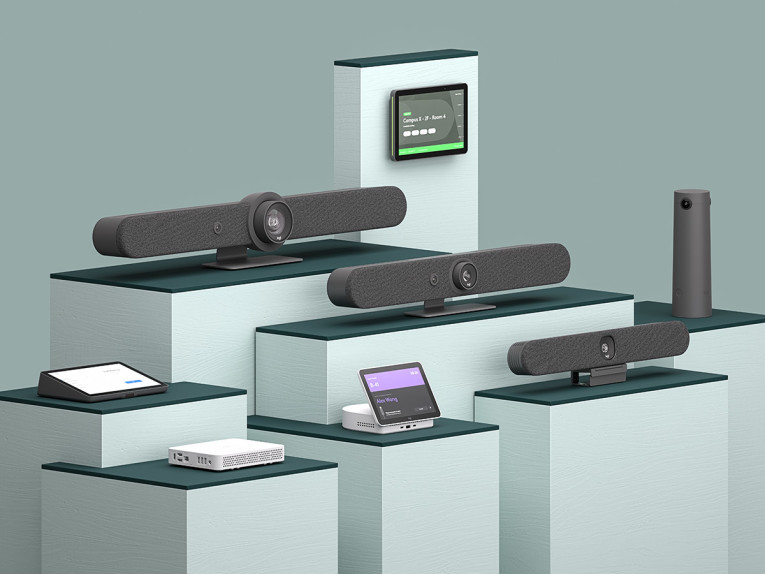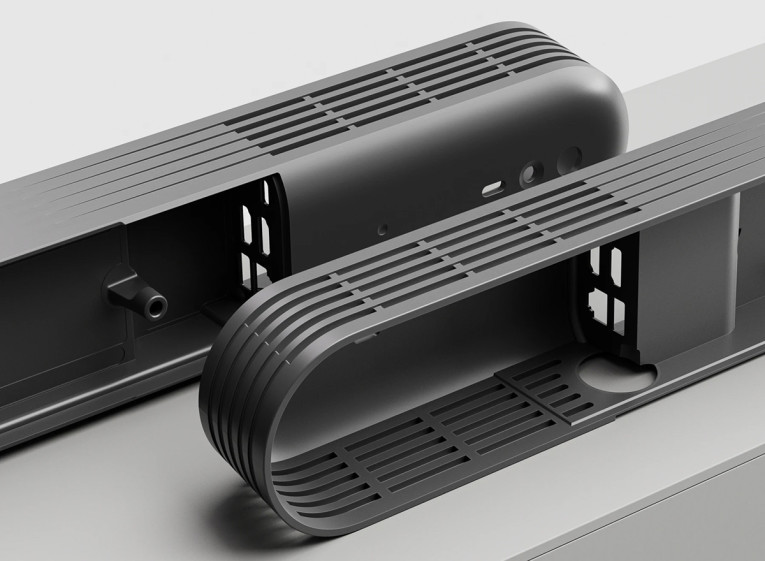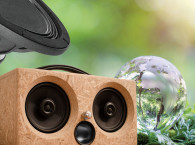
Logitech customers can now equip entire conference rooms with sustainable technology to help them manage their carbon footprint. As the company confirmed at ISE 2024, all existing Logitech video conference and collaboration products are being redesigned with recycled materials without any price increase or quality change. This includes conference speakers, videobars, webcams, mice, headsets, and keyboards all already made with recycled materials.
All these Logitech collaboration devices run on the CollabOS operating system and include existing products such as the Rally Bar, Rally Bar Mini, Tap IP, Tap Scheduler, and Scribe. All these models are being refreshed with materials that lower the carbon impact of each product.
"By transitioning our portfolio of conference room devices to a lower product carbon footprint, we are helping other companies navigate their sustainability challenges," says Prakash Arunkundrum, Chief Operating Officer at Logitech. "We’re not only designing and manufacturing new products with recycled plastic and other lower carbon materials, but refreshing existing products to provide IT leaders with a new way to evaluate their workplace technology investment in conference room systems - one that includes people and planet. We do this without increasing prices or compromising the highest quality and performance companies expect from Logitech."

Efforts to reduce negative environmental impact have rapidly become a business imperative. In a recent survey of IT professionals by analyst firm Frost & Sullivan, 65% say that becoming a leader in environmental, social, governance and sustainability practices is a critical or very important business objective in the coming year.
Applying Design for Sustainability (DfS) principles to Logitech’s video collaboration portfolio means that Logitech customers can outfit entire conference rooms – including Microsoft Teams Rooms and Zoom Rooms – with technology designed with sustainability in mind. This development expands on the progress already achieved with personal workstation peripherals such webcams, headsets, mice, and keyboards.
A key tenet of Design for Sustainability (DfS) is the use of circular materials that can be recovered from the waste stream and given a second life, including post-consumer recycled plastics (PCR) that Logitech calls “next life plastics."
Newer conference room products already use a minimum of 50% certified recycled plastic, low carbon aluminum made with renewable energy rather than fossil fuels, packaging from FSC-certified forests and other controlled sources, and 100% recycled fabrics. Logitech has also decreased its Scope 3 emissions by 21% in 2022 with the goal of removing more carbon than it creates by 2030.
To drive carbon reduction at an even bigger scale and stimulate industry-wide progress, Logitech is offering to openly share its DfS principles, tools and its knowledge of how to incorporate more sustainable materials in the manufacturing process with any organizations in the consumer technology industry interested in increasing their sustainability efforts. For a consultation on how to incorporate more sustainable materials into your manufacturing process, contact sustainability@logitech.com.

Transparency and Accountability
As more companies hold themselves accountable for measurably reducing their carbon impact, they increasingly seek out technology vendors who provide transparency via key performance indicators, reporting, and third party certifications. Logitech is on track to achieve its 2025 target of having a product carbon footprint for every product in its portfolio, making it easier for company technology buyers to make informed decisions about – and report on – the scope of their impact when outfitting their global workforces for meeting rooms, personal workstations, and flex desking. Logitech annually reports on its progress toward its Climate Action goals in the 2023 Impact Report.
Logitech chooses to use lower carbon materials wherever possible, like post-consumer recycled plastic that comes from electronics that might have otherwise ended up in landfills. All the fabrics used in its products are made with recycled plastic materials instead of virgin polyester, giving used materials like plastic water bottles a second life. Choosing low-carbon aluminum, which is produced with renewable energy like hydropower, leads to a lower carbon footprint (up to 80% lower), compared to traditional aluminum, which is produced using fossil fuel energy.
Finally, Logitech's all-in-one videobar solutions require fewer devices and can draw less power, compared to room systems requiring an external computer or additional speakers and microphones. And to further reduce impact, Logitech provides spare parts and makes components replaceable on headset earpads, remote controls, and back covers in videobars.
www.logitech.com







